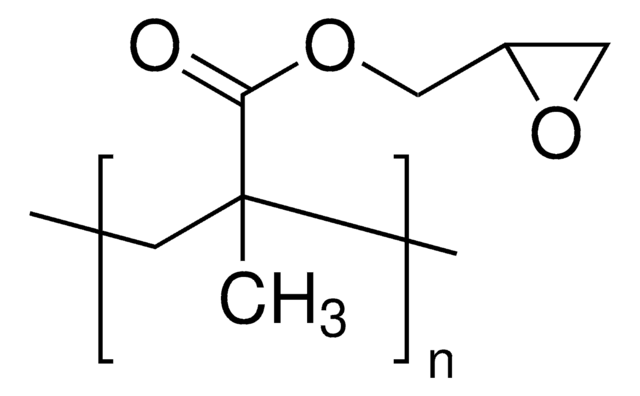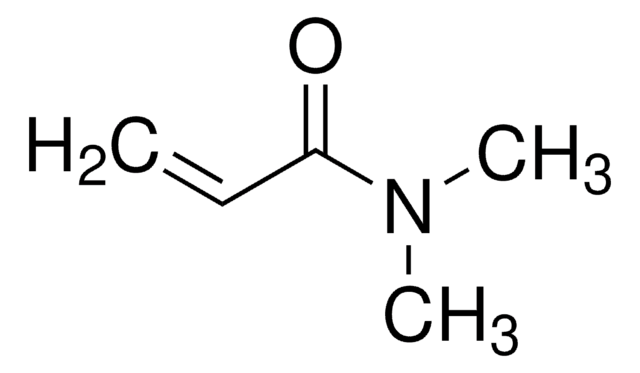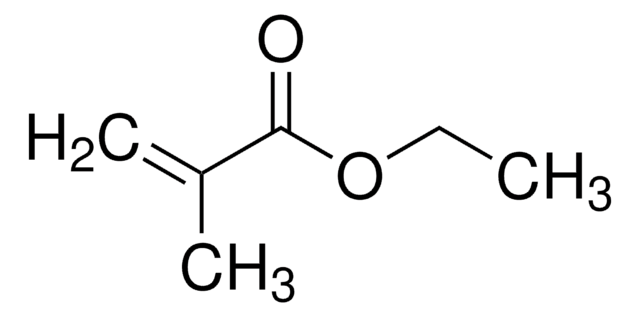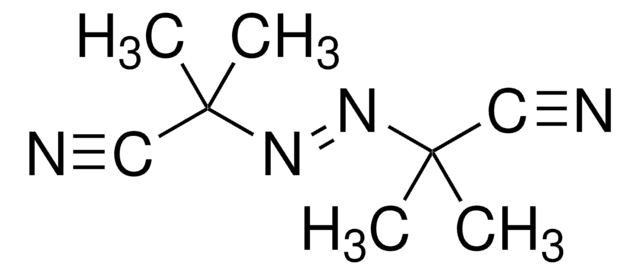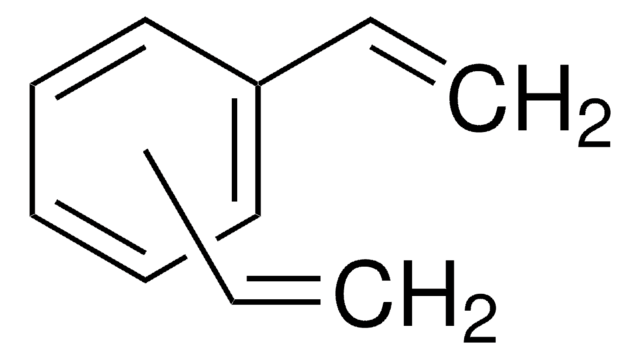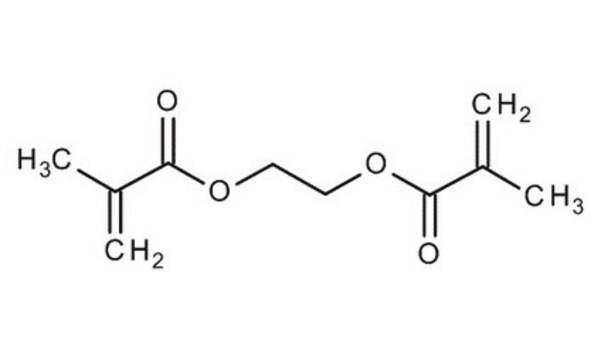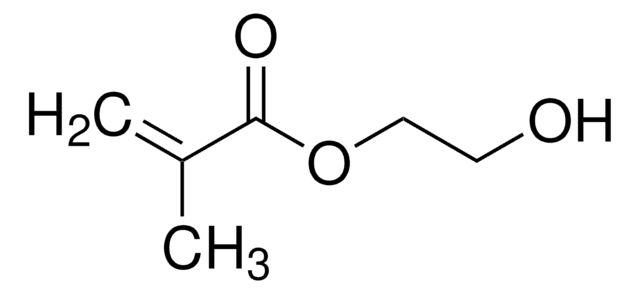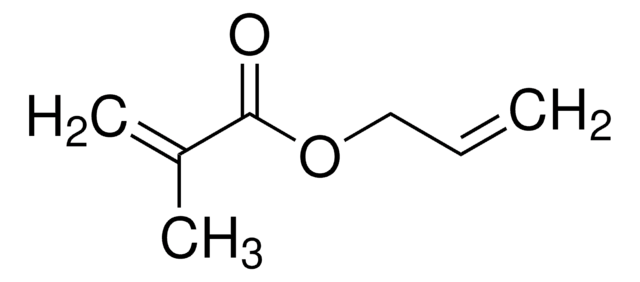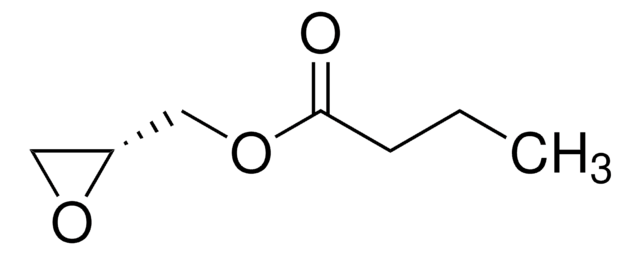151238
Glycidyl methacrylate
97%, contains 100 ppm monomethyl ether hydroquinone as inhibitor
Sinónimos:
2,3-Epoxypropyl methacrylate, Methacrylic acid 2,3-epoxypropyl ester
About This Item
Productos recomendados
Nivel de calidad
Ensayo
97%
Formulario
liquid
contiene
100 ppm monomethyl ether hydroquinone as inhibitor
impurezas
0.02% epichlorohydrin
índice de refracción
n20/D 1.449 (lit.)
bp
189 °C (lit.)
densidad
1.042 g/mL at 25 °C (lit.)
temp. de almacenamiento
2-8°C
cadena SMILES
CC(=C)C(=O)OCC1CO1
InChI
1S/C7H10O3/c1-5(2)7(8)10-4-6-3-9-6/h6H,1,3-4H2,2H3
Clave InChI
VOZRXNHHFUQHIL-UHFFFAOYSA-N
¿Está buscando productos similares? Visita Guía de comparación de productos
Categorías relacionadas
Descripción general
Aplicación
Palabra de señalización
Danger
Frases de peligro
Clasificaciones de peligro
Acute Tox. 3 Dermal - Acute Tox. 4 Oral - Carc. 1B - Eye Dam. 1 - Muta. 2 - Repr. 1B - Skin Corr. 1C - Skin Sens. 1 - STOT RE 1 - STOT SE 3
Órganos de actuación
Respiratory system
Código de clase de almacenamiento
6.1C - Combustible acute toxic Cat.3 / toxic compounds or compounds which causing chronic effects
Clase de riesgo para el agua (WGK)
WGK 3
Punto de inflamabilidad (°F)
168.8 °F - closed cup
Punto de inflamabilidad (°C)
76 °C - closed cup
Listados normativos
Los listados normativos se proporcionan para los productos químicos principalmente. Para los productos no químicos sólo se puede proporcionar información limitada. Si no hay ninguna entrada, significa que ninguno de los componentes está en la lista. Es obligación del usuario garantizar el uso seguro y legal del producto.
EU REACH Annex XVII (Restriction List)
Elija entre una de las versiones más recientes:
¿Ya tiene este producto?
Encuentre la documentación para los productos que ha comprado recientemente en la Biblioteca de documentos.
Los clientes también vieron
Global Trade Item Number
| Número de referencia del producto (SKU) | GTIN |
|---|---|
| G8377-25G | 4061833643907 |
| G8377-25MG | 4061831168853 |
| G8377-100G | 4061833630235 |
| G8377-10MG | 4061831168846 |
| G8377-500MG | 4061833643938 |
| G8377-5G | 4061833643945 |
| PHR1514-1G | 4061834418252 |
| G8377-1G | 4061835557073 |
| 151238-100G | 4061838739063 |
| 151238-18KG | |
| 151238-500G | 4061838739070 |
| 151238-5G | |
| 151238-5KG | 4061832928654 |
Nuestro equipo de científicos tiene experiencia en todas las áreas de investigación: Ciencias de la vida, Ciencia de los materiales, Síntesis química, Cromatografía, Analítica y muchas otras.
Póngase en contacto con el Servicio técnico

